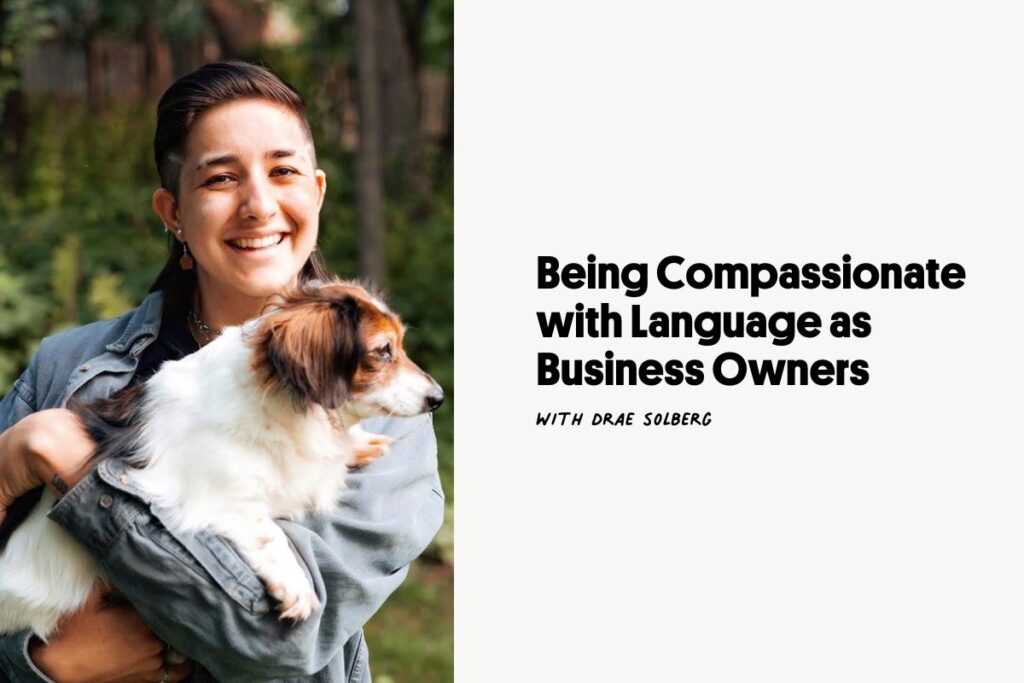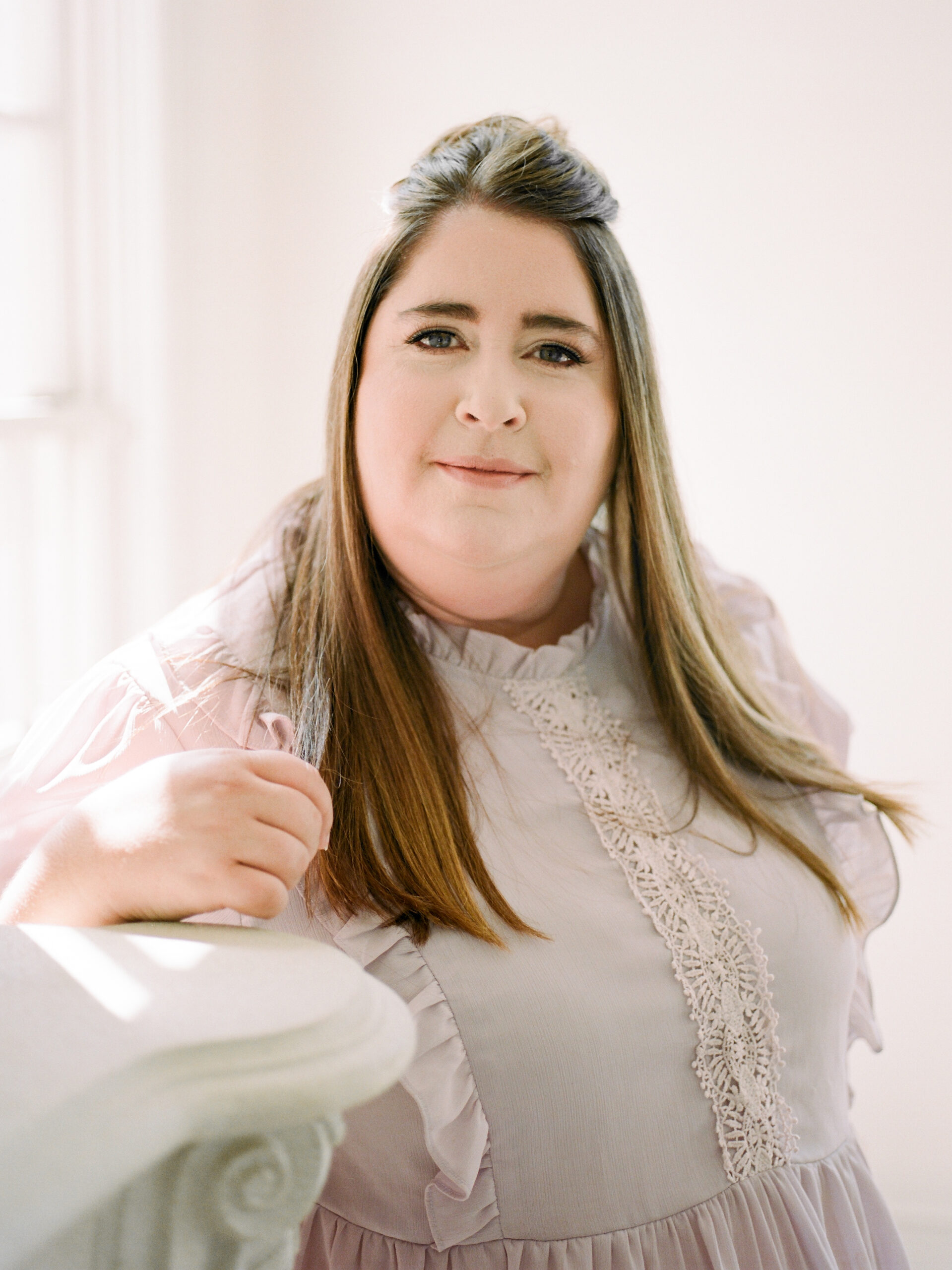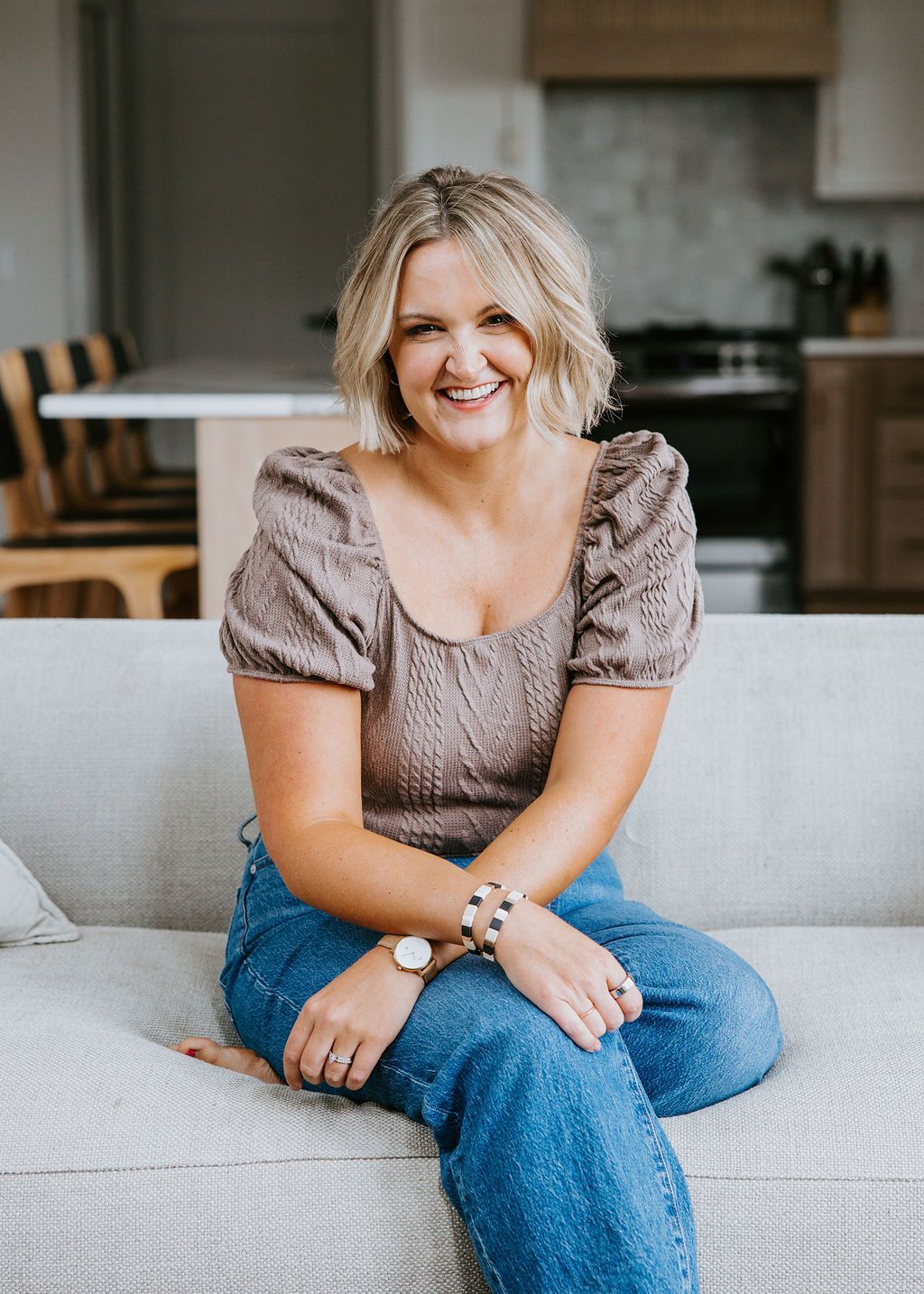A compassionate approach to language doesn’t just mean avoiding hurtful or insulting words; it also means taking care in selecting words that are kind, respectful, and considerate. If you’re interested in learning about the importance of compassion with language as a biz owner, you’re in the right place!
With this episode/blog post, we have Drae Solberg with us, who will be teaching you all about the importance of compassion. Keep reading to learn more!
Meet Drae Solberg

My name is Dre, my pronouns are they, them, and theirs, and I am the owner and primary caregiver of my small business, AllCompanion Pet Care.
This post is written through Dre’s POV from the podcast.
Why language is critical with the importance of compassion
In terms of businesses, language is particularly important because it’s the primary way we communicate with customers generally, whether that’s verbal or written, and it’s the way we connect with our clients, the way we connect with potential clients in the community beyond.
It’s especially crucial because it directly impacts how we perceive, communicate, and interact with others and then that kind of flips back on us, right?
So if we’re using choice words, that’s going to affect people’s perception of us, and it affects our perception of others.
I focus a lot on language because it’s vital for inclusivity, specifically pertaining to our consideration of other species and beings, regardless of their breed, age, gender, color, ethnicity, ability, life experience, or whatever that might be, and using language that is more intentional, more conscious, more respectful, that helps us be inclusive and put action behind our equity and inclusivity statements and help us build stronger connections in communities, definitely.
There’s a lot of weight that kind of goes into language, and if you’re using language that isn’t specifically inclusive, you kind of can alienate people and different types of clients that you could work with just because they can’t see themselves in your work and see themselves in your words and feel like they could be a part of your community. So it’s so important to have that language upfront and clearly visible so that people can feel that connection with you instantly.
Common phrases we should avoid using
There are so many. Yeah, one of them that comes to mind straight away is “don’t turn a blind eye.” Right, we hear that one often, but that phrase that seems so simple, it’s so normalized, but it’s inherently ableist, and it suggests that blindness is a negative characteristic.
In that case, we could instead use don’t ignore or don’t overlook XYZ. Whatever we’re talking about, right, and in terms of the industry I’m in, I provide companion care services, so I’m not directly doing any rescue work or sanctuary work, but once upon a time, I did, and oftentimes in advocacy spaces, we encounter phrases like be their voice.
So statements like that can also be argued as ableist and definitely anthropocentric words. And that implies that human animals are voiceless and need human advocacy. They don’t, and we could use words like speak up for them or advocate for them instead.
I’ve just seen this in so many different industries, and I can’t speak to every single one. It’s very situational. It’s definitely dependent on the field.
On that, there’s another statement “in the field,” it’s something that many individuals within the outdoor industry will say to describe backcountry work that can easily be interpreted as militaristic and then sensitive to anyone impacted by war, enslavement or conflict, so saying in the wilderness or on the trail instead, and you know I could go on all day.
But one major language change that stands out to me daily is the normalization of specific pronouns, which is helpful, of course, for queer and trans individuals, but beyond us, it applies to human individuals.
So when you’re not sure of someone’s identity or expression, you’re not sure of how one identifies or even the gender that someone was assigned, regardless of their species, we can avoid objectifying language and go to the default pronoun of they, them, pronouns of they, them.
So if I see a squirrel on the street, I’m not going to point to them and say, oh, look at it, it’s so furry, it’s so cute. In that, I am objectifying said squirrel who’s crossing the street, and that nurtures that disconnect that we mentioned because we’ve chosen a very specific word to describe this individual we’re seeing.
But in this human-centric world, we have a way of nurturing a disconnect simply with a different pronoun, and I’m always hesitant to use the she/he pronouns when referring to beyond human individuals. And now, whenever I see anyone on the street to who I am not yet introduced to, I always opt for they, them/theirs pronouns. So it really is starting with the pronouns and going to common phrases and well beyond.
Tips for being more compassionate & inclusive with language
First off, something that I have to remind myself of daily is that discomfort is where we grow. So if someone’s coming to us and sharing, hey, you know that statement, you just said that word, you just said it was kind of insensitive being able to check our ego at the door straight away, you know, pat them on the back, say, hey, thanks for looking out, thanks for letting me know that once upon a time we thought we knew best.
But right now, we need to take a step back, and really, from there, you go to reflection, and reflection is key to speaking more consciously and being more aware in general, and through that reflection, you can again make peace with your ego.
Put them in the corner with like a nice cup of tea, maybe a cookie, and let them enjoy themselves, but really, really think about how what you shared, what you said, could be hurtful or exclusive to certain individuals, and that helps you be more mindful of your words.
In part of that, too, especially if you’re being called in, not called out, by someone else, it’s so important to listen to anyone in a community you do not directly relate to, and that might be a group that has been historically marginalized.
So, by checking yourself, by putting your ego aside, by reflecting, by staying mindful, then you’re able to be more conscious of how communities are directly impacted by language alone. We see this in historical documents; we see this in interactions between communities; we see this harmful language normalized in media, and so on and so forth. And recognizing that we can do different, we can do better; we can start by initiating change through our language and how we communicate with anyone else. That’s kind of vital.
How to be more compassionate to ourselves
I will always say, first and foremost, when we’re looking to nurture more compassion, whether it’s through our language or just in general, I always recommend slowing down, and a way I do that is by remembering my connections to nature because we are all a part of nature. That’s how we’re all connected, and we change with the seasons.
So we might have a day where we get every phrase right, we get every word right, and then the next day we have a slip-up. We have a phrase come up from way in our childhood way, in our past, maybe something we saw or heard in the media, however long ago, and then we get called in, and you get on yourself – oh, my goodness, why didn’t I get that right yesterday?
We change just as the seasons do, and I’m not going to even say it’s that we regress. It’s just that we have minds that operate well beyond our consciousness, we have bodies that operate beyond our consciousness, and we exist within a world well beyond our consciousness.
So we got to be patient with ourselves. We got to take those moments to get outside and breathe and take time to ourselves, away from work, away from capitalism, to recenter ourselves, ground ourselves, reflect on our place in the world and how we can share more compassion and love because that’s ultimately where all change comes from – all the great change comes from, I should say.

There is no end point
Not only is discomfort where we grow, and we’re changing with the seasons, like you said, there is no endpoint. Truly, there’s no endpoint to anything. We build our to-do lists, and we give ourselves so much to think about, so much to do.
Oh, once I learn about XYZ, then I suddenly won’t have slip-ups. That’s not realistic. We got to stay patient and understand that things constantly cycle in life. They come and go; they ebb and flow. I really love that point. That’s just as important to remember.
Final Thoughts: Language Compassion as Business Owners
We hope that you enjoyed this post/episode all about the importance of compassion in language.
To stay up to date with Drae, visit Instagram, Facebook, TikTok, and this website.
Check these out next:
- How to Use Astrology for Business with Laura Quintero
- How to Stand Out Online with Steph Hennessy
- The Importance of Boundaries in Business
- Wedding Planner Showit Website for One Bell Designs
- Hero Brand Archetype Examples For Photographers - January 28, 2026
- Sage Brand Archetype Examples for Photographers - January 20, 2026
- Creator Brand Archetype Examples for Photographers - October 28, 2025
8/21/23
Published On:
Krystianna Pietrzak






